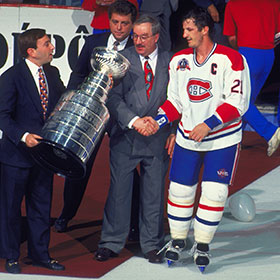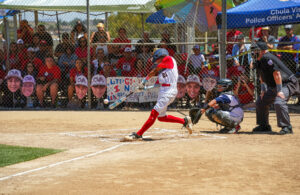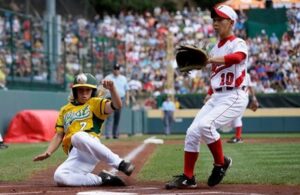New Hall-of-Famer Guy Carbonneau on the Infamous Marty McSorley Illegal Stick Controversy
- Updated: November 18, 2019

Photo credit: Ryan Cowley
TORONTO — Some can argue that given his modest career numbers, Guy Carbonneau should not have been inducted into the Hockey Hall of Fame. Then again, for those who can appreciate the role of a solid defensive forward, not to mention a consummate leader whose guidance helped win three Stanley Cups, then Carbonneau’s place in hockey’s Holiest shrine is well-deserved. Additionally, since 1993, Carbonneau has been known for being the last captain to lead the storied Montreal Canadiens to a Stanley Cup victory.
Speaking of 1993, though, let’s stick with that for a moment.
Unlike previous Canadiens teams who had a tendency to dominate the National Hockey League, both championship versions Carbonneau was a part of — 1986 being his first — neither Canadiens club were favoured to win hockey’s Holy Grail. But in ‘86 and again in ‘93, the Habs did just that, defeating the Los Angeles Kings in five games in the latter year.
Like the Canadiens during the spring of ‘93, the Kings were just as unexpected to go as far as they did. In fact, missing Wayne Gretzky for a large chunk of the regular season had many writing off the silver-and-black. Nevertheless, the Kings persevered, thanks to, among others, Luc Robitaille, who led the Kings with a career-high 63 goals and 125 points in 1992-93.
After Game 1 of the ‘93 Stanley Cup Final, though, it appeared as if Robitaille, Gretzky and the Kings were poised to win their first-ever championship. But then, Game 2 happened.
Late in Game 2 with the Kings up by a goal, the Canadiens called to have the stick of Kings enforcer Marty McSorley measured — a tremendous risk taken by the Habs, but one that paid off and one that proved to be a turning point in the series.
Following Friday’s ring ceremony at the Hockey Hall of Fame, I was able to speak with Guy Carbonneau, who was kind enough to share his insights on said controversy.
“We knew about it,” Carbonneau began referring to McSorley’s illegal stick. “But we had five or six guys on our side that had illegal sticks and they had six or seven guys on their side that had illegal sticks.”
Members of the Canadiens definitely knew something was amiss earlier in the contest but Carbonneau and his teammates weren’t inclined to cash in until a pivotal moment of the game — at the 18:15 mark of regulation, to be precise.
“The rules in those years was that at the end of the game, if you were ahead by one or two goals, everyone had to change their stick to legal,” continued the new Hall-of-Famer. “You know, most of [the Kings players] had two or three sticks on the rack when a couple were legal. In those days, it was a quarter-inch, so if you had a big curve on your stick, it was easy to see. Everybody else but Marty [McSorley] changed his stick. It’s history.”
Granted, this is a controversy that is over 27 years old but it is nonetheless a controversy that has been looked at as a curse, for lack of a better term, for the Kings. In fairness, since they achieved their Stanley Cup dreams in 2012 — and even again in 2014 — you would be hard-pressed to find anyone supporting the silver-and-black to still be dwelling over this controversy or, if you will, injustice. As Carbonneau told me, however, it’s history.
Still, the 59-year-old had a lot of reflecting to do on this day and this weekend, thinking about not only his two Cup wins in Montreal but near the end of his playing career, helping the Dallas Stars win their first Stanley Cup in 1999 and another Finals appearance with the club the following spring before retiring.
In 1318 games, Guy Carbonneau scored 260 goals and 663 regular-season assists and 38 goals and 93 points in 231 playoff games. Some may not agree that these numbers are worthy of Hall-of-Fame induction. Of course, other facets, including winning the Frank J. Selke Award three times as the NHL’s top defensive forward, may — and does — add to the argument that the native of Sept-Iles, Que., does deserve to be enshrined in the Hockey Hall of Fame, regardless of his offensive numbers or of his role in the illegal stick saga of 1993.






